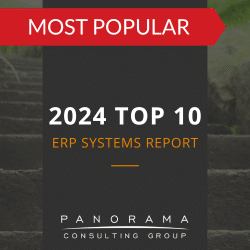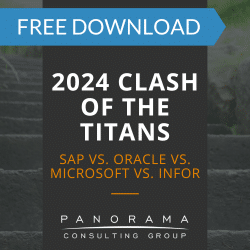Even though companies are making deeper investments in data and analytics than ever before, many companies still lack the intelligent insights they need.
Sometimes, the issue is the data itself. It may be outdated or otherwise unreliable. Other times, it’s an issue of complexity or inaccessibility.
This is where decision intelligence comes into play. What is decision intelligence and how can it help you optimize your business data? Let’s take a look.
Decision Intelligence Defined
Decision intelligence is both a technology and a discipline.
In one sense, it’s a strategy that an organization uses to design, model, manage, and fine-tune its decision-making process. The goal of this strategy is to enable business users to make better-informed decisions to improve customer service, anticipate supply chain issues, and more.
Sometimes, decision intelligence refers to a type of technology. Many enterprise systems incorporate decision intelligence technology that integrates enterprise-wide data points, analyzes them, and provides recommendations.
While this might sound straightforward, the reality is that many companies have more data than they can handle and no clear roadmap for using it to their advantage. They simply delegate someone to dig up as much information as they can and run reports on this incomplete data.
Decision intelligence is about changing this outdated approach and empowering companies to do more with what they have.
Software Selection & Process Improvement Case Study
In helping the client get its project back on track, one of our primary focus areas was decreasing their customization needs by improving their processes to align with the system's best practices.
Building a Data-Driven Culture
Most companies can’t make smarter decisions without changing their overall approach to decision-making.
Data-driven thinking must be woven into the very fabric of an organization, from the day-to-day operations to the workforce mindset.
Once this culture is established, the company can begin evaluating software solutions that can provide both data intelligence and decision intelligence.
(Key Concept: What is data-driven decision making?)
Decision Intelligence Technology
Advanced analytics solutions can help organizations make the best use of their business data. These tools and technologies make data analysis much less complex than it has been historically.
For example, natural language processing technology can quickly summarize large volumes of data, while generative AI technology can analyze this data to create new forecasts and strategies.
These types of technologies break down barriers to data access and even equip employees with no-code tools that democratize data analysis. While end-user training is still essential, the necessary skillsets for data analysis have changed.
What About Decision Intelligence in ERP Software?
Many organizations have what’s known as composable ERP software. This is a setup where business functions are spread out among various SaaS applications.
While these systems can help each department cater insights to their own needs, they can also pose a problem: The more widespread data becomes, the more difficult it is for leaders to get a holistic view of their operations.
Even with a core ERP system connected to a central data repository, accessibility can still be an issue. A massive amount of information is readily available, but the right tools and skillsets are nowhere in sight.
If this sounds familiar, a decision intelligence platform may be able to bridge the gap between your disparate systems. You can connect it directly to your ERP platform or integrate it into your data warehouse.
Once deployed on top of your enterprise applications, the decision intelligence platform can integrate all the data within those individual apps.
Many companies are implementing AI-powered decision intelligence systems that combine horizontal data and analytics tools with specialized SaaS applications. These companies may already have ERP software with native applications for functions like CRM and HR, but this software often lacks the advanced analytics capabilities of a decision intelligence system.
(Key Concept: Learn about AI in ERP.)
What About Digital Twins?
Digital twins rely on various data sources to generate real-time digital representations of physical objects and locations.
For example, a manufacturing company might use a digital twin to model and test changes to their factory floor.
Digital twins are often integrated with decision intelligence. In fact, modern digital twin technology features machine learning capabilities, as well as other data analytics tools, such as predictive analytics.
Many of the top ERP systems and top manufacturing ERP systems have both predictive and prescriptive analytics functionality that enables organizations to make the best use of digital twins.
Do More With Your Data Through Decision Intelligence
When you make a business decision, you should feel confident. However, many business leaders are taking big leaps blindly. This is where decision intelligence becomes helpful.
What is decision intelligence? Contact our ERP consultants below to learn more about this concept as well as data management in general.














